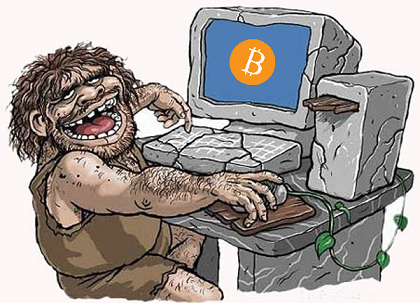
Do we really think it's a good idea for the apes to lord over themselves?
It is definitively a bad idea. This is exactly why @dan's new governance project is going to fail, just like all his other attempts at sovereign governance have failed. "More equal animals"? Ah, well, that's where you're wrong, friend. Animals are not equal. People are not equal, and thus the systems we build have to reflect the actual reality of the world we are living in, and not some fantasy world where everyone is good at everything. More on this later.
It's easy to see how 'democracy' came into popularity.
When you have to choose between monarchy, aristocracy, plutocracy, oligarchy, 'communism', 'socialism', dictatorship, theocracy, totalitarianism, stratocracy, feudalism, federalism, tribalism, anarchy.... well, given those choices, 'democracy' is looking pretty damn good, eh?
We can see that what happened is that the previous forms of government were so terrible that we fishtailed in the opposite direction and tried to allow everyone to have a voice. This was also a mistake. You are not entitled to your opinion.
"democracy"?
And of course by 'democracy' I mean republic governance, because even though direct democracy can easily be accomplished now with the Internet, no one has actually done it yet. Want to know why? Because direct democracy is a terrible idea that lacks leadership, focus, and vision (just like crypto). Nothing would ever get done in a direct democracy with everyone fighting over every single decision ever made. These decisions must be delegated to a more central agent that can actually get shit done.
Thus, what people actually mean by 'democracy' is more like Delegated-Proof-Of-Democracy. Also known as a republic, we elect our representatives, and in turn those representatives are supposed to, you guessed it, represent us. Too bad that's just the theory and not the reality of the situation, as representative democracy has also been a huge fail for a number of reasons.
- One to one voting is worthless.
With the ability for anyone with money to manipulate public opinion using mainstream media in ways that were impossible just 100 years ago, the one-person-one-vote system has been hacked into oblivion. When people vote, they are not making informed decisions. On a statistical level they are simply doing what they are told via propaganda and other forms of brainwashing. - Elected representatives can't be voted out.
These people get elected and then immediately proceed to backtrack on everything they promised their constituents. Politicians do not represent the people; they represent the powerful entities that have managed to hack the governance structure. Politicians work for Blackrock and other billionaire entities. When we realize this truth we can see that politicians are masters at what they do rather than the bumbling fools we perceive them to be. By the time their 2-4 year election period is up the damage has already been done, and they also have dozens of tricks that will help them get reelected even though they did a terrible job the first time around. - There is no incentive for them to do the job they were hired to do.
However, there is massive incentive to play the politics game and trade power for money and favors behind closed doors. Quid-pro-quo. Gladhanding. Bribery. Blackmail. You name it, they are involved. Serving the people that voted them in is last on the priorities list. - It is a systemically failed system.
Even when good people get elected they are swept away by a tidal wave of corruption and stonewalling. Those who refuse to play ball will be canceled by the powers that be and they will change nothing, even though they strive to do just that.
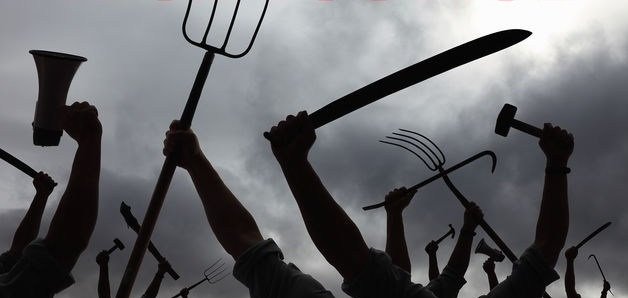
Democracy is rule by the mob.
Yeah, because large groups of people have never come to idiotic conclusions before. Laugh. At the end of the day people are stupid and don't know how to govern themselves. Humanity is a hive cluster. We are all small and powerless when divided and separated. If you move into the wilderness and live off the land, you aren't going to be building your own smartphone or car or pave roads.
On our own we are not only weak, but also can't scale up to anything greater. It takes millions of people working together to create the cool stuff. This is why the economy exists: as a means to work together in the most fair way we can muster (which obviously isn't very fair at all but it's the best we've got).
Money is reputation on a fundamental level.
- Money is a language, and that language conveys value.
- When we run out of money, we've run out of reputation.
- We've become a burden to the system and the system refuses to allow us to leech more value from it.
- Money/Reputation must exist to stop people from bleeding our communal resources dry.
- The problem becomes: who controls the money?
- No one is supposed to control it, but they do.
- Precious metals were a good way to avoid said control, but the deflationary nature of PMs combined with poor velocity and elasticity was even worse than centralized control via institutions, surprisingly.

Crypto fixes this.
We've now found a way to not only automate the control of money and return to idealistic tendencies, but also to automate governance itself and remove politicians from the power positions that they were destined to exploit. The question now becomes: how do we best automate and develop this new system?
Bitcoin's answer was the simplest one.
Bitcoin's answer was anarchy.
What's the best government?
No government.
Government can be hacked.
We have no government and thus we can't be hacked.

This was a great start.
Unless you're a maximalist and assume that Bitcoin will take over.
It will not, and that's a good thing.
Anarchy doesn't scale.
Now we have an anarchist government that takes no risk and places security as the number one priority. Using this magical baseline we can now fill the void that was created from it. The vacuum left behind in Bitcoin's wake is a lack of governance, focus, and direction. There is also a lack of inflation, and thus also a lack of growth and flourishing, all good things for the projects that come later. Bitcoin is the gateway and all the children of Bitcoin support the features that Bitcoin could not address.
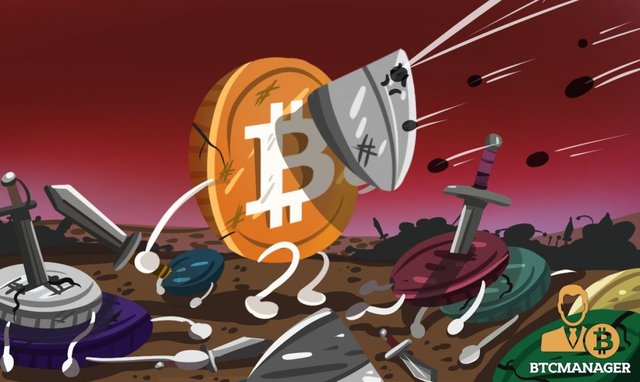
What direction should we be headed in?
Many people are leaning toward democracy. Everyone's voice matters. Everyone's opinion matters. Yet we see where this path leads. It leads to a DAO buying an old copy of Dune and then wrongly assuming it now legally owns the rights to Dune. Idiots. These DAOs are going to keep doing stupid shit like this: making decisions that are clearly wrong and bad for the entire group, because average people are average. We don't want average people making decisions. That will lead to average outcomes. We want expert outcomes, not subpar ones.
The Search for Philosopher Kings
Check out this post I wrote Jul 3, 2018. Steem was trading at $1.84 and we all thought we were about to spike back up to all time highs again. Ah, such greed. How marvelous. Think about how much has happened since then. We bottomed out at 10 cents multiple times and we aren't even called Steem anymore. As crazy as it sounds, I bet this community is going go through just as much madness over the next five years as it did within the first five. I don't know if you guys have noticed this or not, but this roller coaster is not slowing down; it is definitively speeding up.
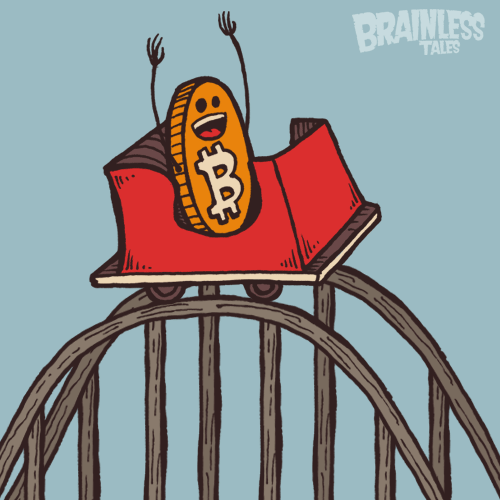
The Search for Philosopher Kings
Oddly enough, I really enjoyed my Philosophy 101 class in college, which is surprising because I've always HATED school and I still find myself one class away from a bachelors in computer science (Damn you C- in Rhetoric writing skills 101 that didn't transfer to another school).
Luckily, I don't need a piece of paper to tell me I have value. I don't need an employer to judge my worth based off how I portray myself in a pointless interview that won't tell him anything about me as a person. I've been employed by Hive, and I imagine this will be a lifetime career at this point. Hopefully I will make the transition from blogging to something that has a little more value (dev/business-owner), but that's a story for another time.
The Search for Philosopher Kings
Plato was a student of Socrates. Like me, he also knew that democracy was trash. Rather, he believed that "philosopher kings" should rule. Cute right? Telling everyone that your job is the most important job and you should rule the world? Love that. Still, he made some great points that are very difficult to argue with.
On a side note, Socrates was quite the badass. He was so good at arguing with people, challenging their viewpoint, and decimating them with words, that they literally asked him to drink poison... and then he did so willingly rather than take the opportunity to live out the rest of his life as a fugitive. Now that's fucking dedication.
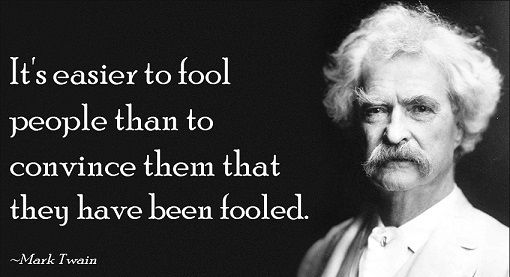
Because when people get proved wrong, do they actually change their mind? No, 99% of the time they just become enraged because their subconscious knows they are wrong (or that there is at least a good chance) and the rest of their being goes into deep conflict resolution. Guess who wins that fight? 99% of the time it's not going to be the subconscious existential dread that maybe we're wrong. Perception is reality.
This is something I've learned the hard way when arguing with my significant other. Ironically, winning an argument is exponentially worse than losing an argument. If I win and provide undeniable evidence that I won, yikes. That's the worst possible outcome. Trust me, I've finally figured this one out. It took me a while but I got there.
Because people do not change their mind. We have pillars of truth embedded in our minds that are used to prop up an entire structure of argument and logic for how the world works. If someone tries to remove a fundamental pillar of truth from someone else's building, the mind will not allow that to happen, because doing so would invalidate everything they 'know' and demolish the entire structure.
This will inevitably trigger a fight or flight response, because 99% of people out there are not willing to rebuild their logic fortress from scratch, and this is for very good reason. Rebuilding is impossible in some cases and extremely inefficient/difficult in others.

- It's money!
- It's government!
- It's anarchy!
- It's freedom!
- It's destroying the environment!
- It's a threat to national security!
- It's abundance!
- It's greed!
- It's an armadillo!
The Search for Philosopher Kings
We can see that the ways we can get sidetracked away from the main topic at hand when it comes to philosophy, are infinite. The bottom line here can be described with a few allegories from these great philosophers.
Specialization argument.
This is the philosophical concept that revolves around certain people being good at certain things. This is an undeniable fact of humanity. No one is a master at everything. This is where the term 'jack-of-all-trades' comes from.
'Master of none.'
So if a professional horse trainer/breeder explains how we should take care of a horse, we listen to them because they have the experience and the knowledge and we TRUST that this experience and knowledge would be better than the average person's advice (or even worse, someone from academia who has studied the thing but not actually done it in practice).
When an artist creates a masterpiece work of art, who is better at critiquing that art? A master of critique, or the artist themselves? We can see how weird this situation becomes, when the master of critique can critique the art better than the person who created it. An artist might say they did something because it "felt right" while the master who critiques it may be able to come up with a dozen insightful mentions that the artist wasn't even thinking about when they produced the content.
So far, so good, yeah?
No one can really argue with this logic. People who are experts at something can more easily be trusted on matters that pertain to that particular subject. However, this argument gets really interesting when you start applying it to things that you normally wouldn't think to apply it to.
Like, doesn't this then mean that some people are really good parents, and that perhaps we should think about parenting and the atomic family and community and upbringing in a completely different way? Doesn't it mean that some people are really good teachers, but the best teachers can make way more money actually being an expert in the field? Thus, those who cannot do, teach? Doesn't it mean some people are really good at governance, but the chance that those people actually get chosen for leadership positions is absurdly low?

Ding ding ding!
So why then would we have this absurd notion that people should govern themselves, when the average person is average and can only, at best, govern themselves averagely? Don't we want to be governed with the skills and aptitude of a master? The answer is obvious; democracy is a ridiculously failed system born from even worse solutions.
A great evolution is upon us.
Because once we can find people that actually deserve to be in power, and then actually get those people into power, the entire world will change in ways that we can't even fathom. It will the difference between night and day. The difference between being a depressed peasant working a 9 to 5 job and the thrill of being a superhero with demigod-like powers. The entire world would change in a very short period of time, and it would keep changing exponentially quickly thereafter in a rapid phase of human evolution with very little corruption and friction standing in the way of ultimate progress forward.
But what are the obstacles preventing us from achieving this reality?
Ironically, the best people fit for leadership often do not seek out the job, and in many cases they don't want the job. That's what makes them so fit for the job in the first place, because people in positions of power need to be uncorruptable. This means the lure of power that position provides does not appeal to them, and thus the only way to get them to do the job is to not only find them, but heavily incentivize them to do it. This is no easy task, and is a concept that no system has ever even attempted to implement due to the underlying complexity of it all.
Interestingly enough, when combined with crypto, these concepts get even more interesting. This is because crypto is all about decentralization and automating out these power positions entirely (if possible). Meaning if we can somehow find this magical uncorruptable person who doesn't want the job but we convince them to take it anyway... crypto then gives them the opportunity to automate out their own job so they can go back to whatever it is that they wanted to be doing in the first place.
It gives these people the tools and incentive required to further decentralize our governance systems in robust ways. Whereas traditionally someone who comes into power would do everything within their power to stay in power... the people we really need to lead us into the future are doing everything they can to get out of power and go back to their other more desirable activities.

This is the nature of philosopher kings.
- They do not desire the power.
- They enjoy the game-theory of it all.
- But not the power or the responsibility.
- They seek to replace themselves with a better option.
- Whether that be a better person or an automated algorithm.
- They actually serve the people they are representing.
- They live a simple life while wielding enormous responsibility.
- They can not be corrupted.
Police Constable Nicholas Angel, born and schooled in London. Graduated Canterbury University in 1993 with a Double First in Politics and Sociology. Attended Hendon college of police training. Displayed great aptitude in field exercises. Notably, urban pacification and riot control. Academically excelled in theoretical coursework and final year examinations. Received the "Baton of Honour". graduated with Distinction into the Metropolitan Police Service. Quickly established an effectiveness and popularity within the community. Proceeded to improve skill base with courses in advanced driving, and advanced cycling. Became heavily involved in a number of extra vocational activities. To this day, holds the net record for the 100 meter dash. In 2001, began active duty with the renowned S019 Armed Response Unit. Received a bravery award for efforts in the resolution of "Operation Crackdown". In the last twelve months, has received nine special commendations, achieved the highest arrest record for any officer in the Met, and sustained three injuries in the line of duty. Most recently in December, when wounded by a man dressed as Father Christmas.
Police Constable Nicholas Angel
While not a good example for someone who's fit to create the rules, he's the ideal example of someone who's fit to follow/enforce the rules. He's the kind of guy that no police station would want, because he would hold his own tribe to account, and the police HATE being held accountable for their own actions. If you are the law: you are above the law. If you live in a Utopia, this is the type of person you allow to enforce the rules (until you have robots running around objectively doing it for you with complete transparency).
Do these people even exist?
They definitely do, and they NEVER get the job. That's because the entire system has been corrupted to the core, and even the most incorruptible of people entering the current system can not stand against a tidal wave of embedded corruption.
Allegory of the cave.
This is what Plato is most known for. On a fundamental level, it is perhaps the best allegory ever crafted when measured in timelessness, governance, propaganda, and philosophy itself. Obviously, Plato had some biases because his teacher Socrates with literally murdered by the 'democracy' he so hates, but again, he makes some great points even if they are perhaps somewhat rooted in self-righteousness.

What about Hive?
What is Hive?
Many call people Hive an oligarchy, and that classification makes a lot of sense. After all, an oligarchy is rule by small elite group. However, the connotation of the word 'oligarchy' is that it is a bad thing, because in our minds consolidating power to a small group is ALWAYS a bad thing no matter what. But what about rule by philosopher kings? That's also an oligarchy, so perhaps our perception of these words is tainted.
There are several versions of 'oligarchy'
- Autocracy
Autocracy is a system ruled by an upper class. This upper class is defined a bit differently than plutocracy. "Members of the aristocracy are usually chosen based on their education, upbringing, and genetic or family history. Aristocracies often connect wealth and ethnicity with both the ability and right to rule." - Plutocracy
This is also rule by an upper class, but that class is more defined by raw wealth/power alone, rather than a class system based on heritage, education, reputation, "good breeding", and tactical marriages. - Stratocracy
This is rule by the military. Often a transition occurs from the current power to the military through extreme hardship and war. - Theocracy
Rule by the church.
Probably my least favorite.
Zealots and cults are the most dangerous and illogical.
Ironically my cult coin is a fun project I've yet to talk about.
So what is Hive?
Clearly within this context, this makes Hive a Plutocracy. That means that Hive is ruled by the wealthy, and it doesn't matter what our class or heritage is, only that we have the money in our control. Having this money gives us massive influence on every vote we make, and we can control others with that influence.
But again, we have to think about this more because the way Hive works is unlike any other Plutocracy that came before it. What is money on Hive? It is Hive itself, but not only Hive, it is powered up Hive that is time-locked for 13 weeks. So is that really money? It is theoretical future money, but it is not currently money.
Before Hive, think about every other plutocracy in existence. Did said plutocracy actually control their currency? In all cases, the answer is a resounding, "NO!" There are no examples of Plutocracies before Hive in which the underlying elite and community itself controlled the currency. Currency was either precious metals (which is controlled by no one) or central banks. Both of these governance models rely heavily on taxation by threat of force. Thus, the way Hive works is like nothing we have ever seen before and cannot be compared to anything in existence (except for perhaps a handful other other similar cryptos, but this is not helpful within this context of analyzing history).
Rewarding expert capital allocations.
In essence, Hive rewards users who are very good at allocating capital, and then storing that value within the network itself. This is something we should all think about very deeply, because it's going to create a ton of weird side-effects that aren't even really being considered.

So rather than Hive being ruled by the wealthy... what is actually happening is that Hive is a central bank that is ruled by people who store their value within the vault of Hive itself. The value within this vault is then shared with the underlying community. Sharing is subjective and determined by each individual independently, which causes many community members to lash out and cry about how it's not fair... but seriously, what we have going here is insane on a fundamental level, and very few people can actually see it for what it is. In fact we might argue that no one can see it for what it is because, like any economy, it is impossible to be fully understood by anyone. Such is the nature of exponentially complex economies.
Rather than viewing Hive as rule by the wealthy, we can see that it's more like rule by the people bringing wealth into the system. Anyone that powers up Hive is making a decisions to turn their liquid value that could have been used to buy a Lambo and pump it into the vault, which in turn benefits everyone on the network. This is obviously an action that should be greatly rewarded, and it is. Sorted.
Oh bro you shouldn't say retarded it's offensive to retards.
-- Guy who thinks we can solve the problems by using nicer words to describe them.
Conclusion
Democracy is dumb. Average people do not know how to govern themselves with any kind of reasonable skill (by definition of specialization), and they are also not able to detect who would be a good representative, let alone build a system in which that representative could actually represent their interests.
What's the solution?
I do not know. This is basically humanity's number one scaling problem that we've been trying to solve for thousands of years. However, I do know that with the advent of crypto and the ability to automate governance and boot up rapid test-nets in short order that this problem will be solved soon™. We are on the verge of an event bigger than the transition from measuring time from BC to AD. People will look back on this era as the beginning of everything that came thereafter. Spoiler alert: 'democracy' will have nothing to do with it. The ultimate goal is rules without rulers. AKA directed/focused anarchy.
We live in perhaps the most important transitionary period of time within all of human history. It's honestly pretty crazy when you think about it. How did we get this "lucky". Are we inside some kind of simulation? I guess I'll leave that question to a more fun conspiracy post with five-dimensional themes from the multiverse.
Posted Using LeoFinance Beta